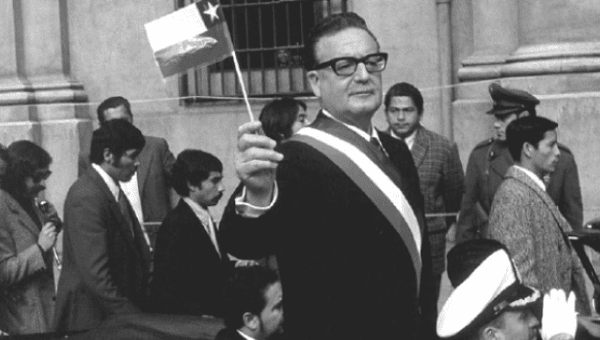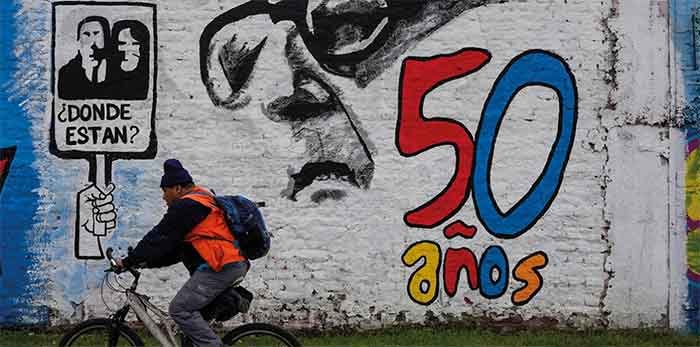
62% of voters in Chile rejected the proposed constitution last Sunday. It may seem paradoxical. How could they reject a constitution that would guarantee
50% reservation for women;
Education, Health and Social Security and care for all are state responsibility; and also
Rights of Indigenous communities or nations or tribes (by whatever name they be called) would be documented for the first time in Chilean history declaring the country as Plurinational and Multi-cultural (rights of indigenous people of 11 nations e.g., Mapuche, Aymara, Quechua and etc and if some other tribe wants to declare its right as a nation it would also be included);
Water will be declared as a Human Right and no personal property will be allowed;
Natures’ Rights would be recognised and Climate Change would be declared as an immediate concern and so on so forth
In recent past, Chile voted 78% for a new constitution in October 2020. Chile also elected a 35-years-old ‘leftist’ once ‘student-leader’ as President in December 2021.
Tens and hundreds of thousands of Chileans burst out in mass-protest starting from October 18, 2019 that continued in some form or other till the Covid restrictions came. Fare-rise in mass transport system, price rise of all essential commodities, intolerably high inequality – all these led masses of people to burst in anger. Government was compelled to propose some changes. More than half citizens came to vote in Oct-2020 referendum and 78% demanded a new constitution. Then came election for constituent assembly that would wite constitution. Next, in end 2021 presidential election made a change in government. This year the proposed new constitution was printed and was made available for the public to read and reflect.
The new constitution talked of some good measures; some of which are mentioned above. Besides, there are — *mother’s right of having baby (or not), which de facto means abortion would be legalised; *instead of ‘democratic republic’ (República Democrática) Chile would be called a parity centred democracy (Democracia Paritaria).
People did burst out spontaneously. Political forces also steppe in. People in the streets started saying ‘NO’ to many aspects of this society – from which in some way a People’s Charter can also be prepared. The Gilet Jaunes in France could formulate a 42-points Charter of Demands in 2019 by participation of hundreds of thousands via social networks and also actual meetings. More than a century ago the Working Women’s Day rally starting from factories in Russian capital started a movement for #peace, #bread and #8-hours-day, and the movement within few days demolished centuries old Monarchy in Russia and de-facto brought democracy. In places the political organisations can also formulate charter of demands taking clue from the people.
In Chile the composition of the elected constituent assembly shows the social dilemma that was going on, as much as those are (at all or partially) reflected in votes. Out of 155 seats, 17 were reserved to be elected by and from the Indigenous people. Among the rest, 138, the right-wing grouping Vamos por Chile got 20.56% of votes to get 37 seats, whereas the so-called left-wing grouping Apruebo Dignidad got 18.74% votes and acquired 28 seats. Three various “independent” groupings, if counted together, got almost 39% votes and got 62 seats. If we try to understand why Chilean voters behaved like this, some information in this regard might be interesting: Analysing the results obtained from an opinion poll “Criteria” (can be had at https://www.criteria.cl/descargas/Agenda_Criteria_Julio_2022-7b5hR.pdf) Noam Titelman writes ‘82% of the people wanted that the writers of the new constitution should not be of any political party’ such was their disdain or lack-of-faith regarding existing political parties there, whereas, ‘in contrast demand for ordinary people are to be member of constituent assembly fell from 37% (Oct 2020) to 20% (in July 2022), but support for ‘experts’ rose from 63% to 80%’.
(¿Adónde fue a parar el apoyo al proceso constituyente chileno? Noam Titelman https://nuso.org/articulo/Chile-plebiscito-constitucion/)
But other things also changed and have been changing.
(1) Covid restrictions brought a phase of people-NOT-in-streets. It also immensely increased the hardship of live for commoners. There were some governmental help programmes like AFP (help from pension fund, roughly from June 2020 to April 2021), then IFE (Ingreso Familiar de Emergencia, emergency relief, from April 2021 to December 2021) — according to that CRITERIA survey, except this period more than a third of the Chileans were feeling their personal economic situation was deteriorating. Except for the emergency relief period, more than half of Chileans were unsatisfied and worried about the way country was going.
(2) The way the constituent assembly and parties were working were seen differently by different section of the people. A survey in which the famous IPSOS also participated, “¿Cómo vemos el proceso constituyente?” (available at https://espaciopublico.cl/wp-content/uploads/2022/08/Informe-sexta-entrega-Resultados-Encuesta-y-Focus-Group.pdf) done in July 2022, some very important aspects can be seen:
As to ‘how much informed you are regarding the working of the constituent assembly’ (¿Qué tan informado/a se siente usted respecto del trabajo que realizó la Convención Constitucional?) the porer the economic group the less they were informed, as they felt.Among the lowest economic strata (D and E) only 26% thought they knew what was going on.
Not only that, the Director of CONADI (National Corporation for Development of Indigenous Population) told that the Mapuche Population did not realise what was written in the text of the constitution! (https://www.theclinic.cl/2022/09/05/director-conadi-declaraciones-triunfo-rechazo/)
(3) In the same survey it was noted that there were some domains regarding which there were confusions in public mind. Surprisingly, Health, Education and Pension – all were within this ‘confusing’ category! According to Macarena Segovia and Paulina Toro (in “Los cuatro días clave que llevaron al Rechazo al tope de las encuestas y los cinco meses de campaña para mantener esa ventaja” 05.09.2022 https://www.ciperchile.cl/2022/09/05/los-cuatro-dias-clave-que-llevaron-al-rechazo-al-tope-de-las-encuestas-y-los-cinco-meses-de-campana-para-mantener-esa-ventaja/) the right-wing exploited some blanks and some indecisions regarding pension funds and other social security measures, and turned the table. According to them $116.7 millions were spent in Facebook campaign to malign the proposed constitution and to increase confusions. In another article of Cipher Chile (https://www.ciperchile.cl/2022/08/26/las-cinco-organizaciones-fantasmas-que-pagan-los-avisos-del-rechazo-en-las-radios-mas-populares/), we find some ‘ghost organisations’ that spend $144 millions in FM Radio advertisements to conduct a tirade against the proposed constitution. These all trued to show how badly the country and the people would fare if the proposed constitution come into effect.
(4) Claudia Heiss, Head of Ciencia Política, Universidad de Chile and Javier Couso, Professor and Constitution specialist at Universidad de Utrecht praised the Pension, Health and (social) Care measures proposed in the constitution. Professor Couso said that the proposed system may take Chilean health system to be like the NHS of UK (https://www.eluniverso.com/noticias/internacional/seis-grandes-cambios-que-marca-la-nueva-constitucion-propuesta-para-chile-nota/). But the right-wingers could create such confusions so as to distract many citizens.
The proposed constitution did mention such rights. But still there were haziness and that was due to the fact that how all these would be done, how the cost will be borne and etc. After the constitution articles there comes some pages describing “Transitory Dispositions” and in the twenty-seventh clause we find that the President will place bills regarding “Social Security System and Care System, within a period of twelve months; National Health System, within eighteen months; and the National Education System, the Public Education System and the Integrated Public Land System, in twenty-four months” after the constitution comes into effect. \
(5) In the capitalist sectors some anxieties were already there: for example, according to some estimation the cost of such social ventures may be in between 8.0% and 14.5% of the GDP, 25-40 million dollars (https://www.eleconomista.com.mx/internacionales/11-claves-para-entender-el-plebiscito-para-la-nueva-Constitucion-de-Chile-20220902-0075.html). Private sectors in mining were also not happy. These may explain the right-wing’s vehement campaign for the NO in the referendum.
But what next?
Nicolás Tobar Jorquera wrote in Ciper yesterday, September 6: “In these first days it must be emphasized that nobody has won anything yet. The results of September 4 do not favour anything more than anomie, and it is very difficult to build a stable house out of the mud. (¿Quién ganó con el Rechazo? https://www.ciperchile.cl/2022/09/06/quien-gano-con-el-rechazo/) Seen from some other way too will give the same impression – Chile did not celebrate after the referendum besides so,e scattered jubilations of staunch NO-sayers in some neighbourhoods of the capital.
The President, the government, the constituent assembly may shuffle and reshuffle, do changes. Already it was seen how the right-wing media interfered (and won) in the recent-most cabinet reshuffle, dropping a probable deputy minister of interior, a ‘communist’, for his anti-militarist tweet of 2011! But ultimately things will depend on the masses of the toilers who started the process of change in October 2019. Their actions were halted due to Covid restrictions and accompanying financial difficulties, and of course there were constitutional illusions everywhere and Chile is no exception. But dissatisfaction is increasing as at least the July-August opinion polls saw. It is too early to predict.
Sandeep Banerjee is a researcher from Kolkotta














































